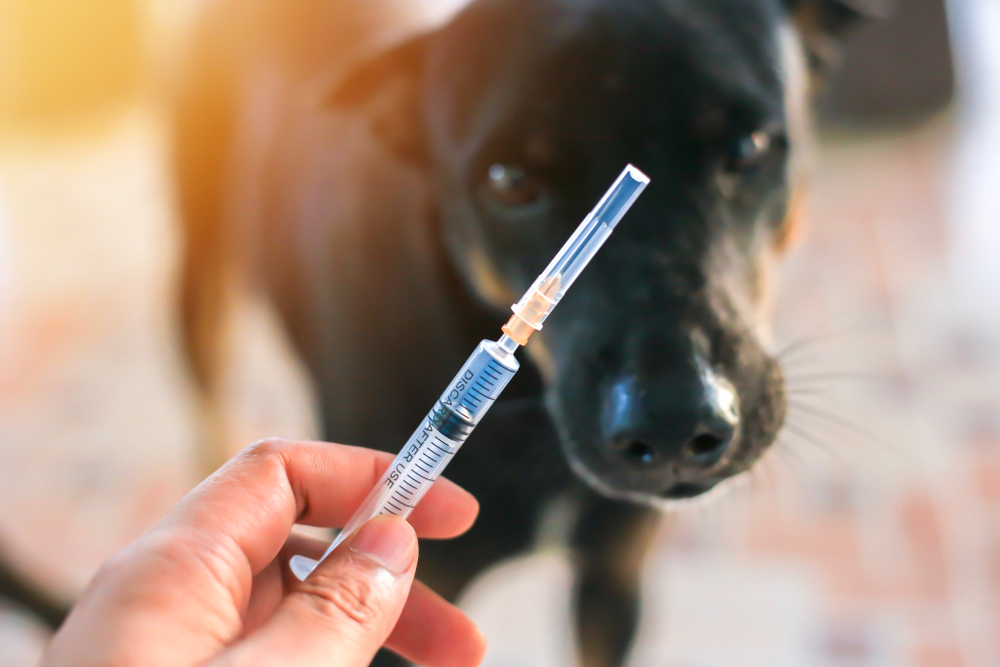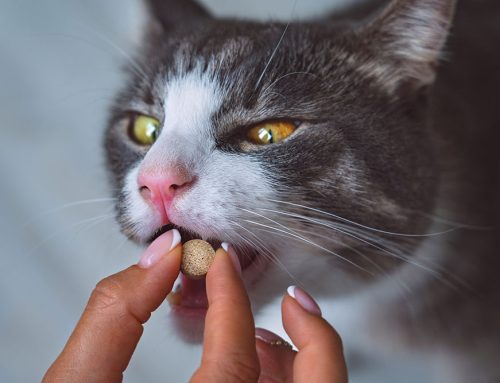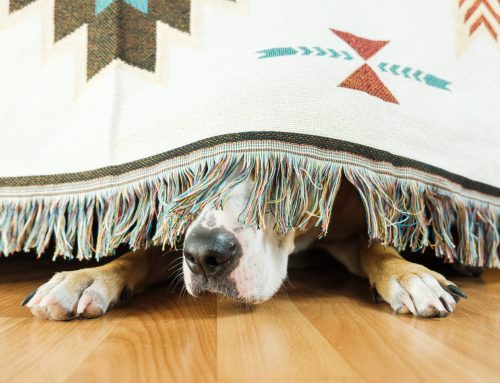Although canine influenza is not a common respiratory disease, we are seeing an increase in cases in our area. To help keep your dog safe from canine influenza, our team answers common questions about this respiratory condition.
Question: What is canine influenza?
Answer: Canine influenza virus (CIV), or dog flu, is a contagious respiratory disease that affects dogs. This illness arises from two different strains: H3N8 and H3N2. The H3N8 strain evolved from equine influenza and was first identified in 2004. The H3N2 strain originated in Asia as an Asian avian influenza and was identified in Chicago in 2015. Highly contagious, both strains can spread through a canine population that is in close contact, such as dogs housed in a boarding facility or animal shelter, or those who play together at a dog park.
Q: How does canine influenza spread?
A: Canine influenza is transmitted by an infected dog coughing and sneezing aerosolized viral particles into the air, and another dog inhaling them. People and contaminated objects, like bowls, toys, and bedding, also can transmit the virus to healthy dogs. The virus’ incubation period is one to five days after exposure, and infected dogs are most contagious two to four days after infection. About 20% of infected dogs do not show signs, but they still can shed the virus, and all infected dogs should be considered contagious for four weeks after exposure.
Q: Can people get canine influenza?
A: While canine influenza primarily infects dogs, cats also have been known to be infected with H3N2, although it is rare. There is no evidence that people can contract CIV from dogs.
Q: What are canine influenza signs?
A: Canine influenza signs can be similar to those of other upper respiratory illnesses in dogs, such as kennel cough. Most dogs exposed to CIV develop a mild infection characterized by a persistent cough for one to three weeks. Other dog flu signs can include:
- Eye and nasal discharge
- Sneezing
- Fever
- Lethargy
- Anorexia
While the majority of infected dogs recover without issue, some dogs can become severely ill with a high fever and pneumonia.
Q: Is there a test for canine influenza?
A: A canine influenza diagnosis starts with a physical exam and evaluation of clinical signs. Because of the time frame in which the virus sheds, testing is different based on how long your dog has been sick. If your dog has been sick for fewer than three days, samples can be taken from the nose or back of the throat to diagnose CIV. Dogs who have been sick for longer than a week can undergo blood testing for a diagnosis. To confirm the diagnosis, it may be necessary to perform additional blood testing after the dog improves.
Q: What do I do if my dog has canine influenza?
A: Dogs with canine influenza typically recover well with supportive treatment for two to three weeks. Keeping your dog comfortable enough so they continue eating and drinking is key, so cough suppressants may be necessary. Since canine influenza is a virus, antibiotics have no effect, but they may be used to treat secondary bacterial infections and pneumonia.
If your dog has canine influenza, good hygiene is essential to prevent spreading the infection. Wash your hands after caring for your dog, keep them at least 20 feet away from other pets, and disinfect the environment and your pet’s supplies. Avoid taking your dog to dog parks, pet stores, or boarding facilities for at least a month after they first display signs to keep other pets safe.
Q: How can I protect my dog from canine influenza?

A: Vaccinations for both canine influenza strains are available and can help protect your dog from contracting a severe infection. Dogs with heart or respiratory conditions, dogs who travel or show, and dogs who are regularly in close contact with other dogs should be vaccinated. If word of a canine influenza outbreak is in the news, it’s best to keep your dog at home and walk them in uncrowded neighborhoods.
Canine influenza is a serious disease, and in light of the recent outbreak, it is best to keep your dog protected. If your dog is due for a canine influenza vaccine, schedule an appointment with our Alisos Animal Hospital team.








Leave A Comment